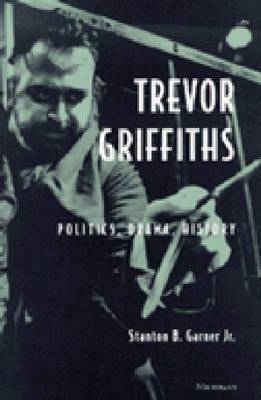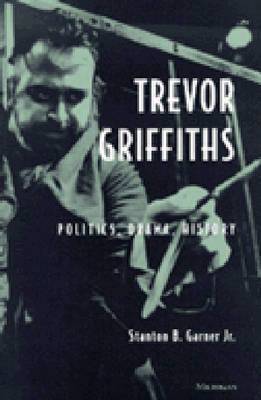
- Afhalen na 1 uur in een winkel met voorraad
- Gratis thuislevering in België vanaf € 30
- Ruim aanbod met 7 miljoen producten
- Afhalen na 1 uur in een winkel met voorraad
- Gratis thuislevering in België vanaf € 30
- Ruim aanbod met 7 miljoen producten
Zoeken
Omschrijving
This book provides an in-depth look at the work of British writer Trevor Griffiths, who has been a powerful and unique presence in British theater, television, and film for the past thirty years. Griffiths's theatrical works, including Occupations (1970), The Party (1973), Comedians (1975), Oi for England (1982) and Real Dreams (1984) have been highly acclaimed by critics such as Benedict Nightingale, who called Griffiths "as articulate and eloquent a thinker as the British stage possesses." Griffiths has also written successfully for British television, and collaborated with Warren Beatty on the Academy-award winning film Reds (1981).
Garner's study is the first to present and critically discuss the full range of Griffiths's works. The works are shown to reveal an intense awareness of class and its material underpinnings, a concern with the power of realism, an overarching commitment to history as a field of political and cultural intervention, and a willingness to examine the terms and parameters of this intervention. Garner traces the influence of New Left historical activism on Griffiths's earliest plays and considers the evolution of his historical understanding throughout his career. He proposes that Griffiths sees history as a scene for the staging of counter-discourses and as a representational course for the establishment of dialectic (and dialogic) relationships between the present and the past, between the received and the revisionist, and between ideological positions.
Trevor Griffiths: Politics, Drama, History will appeal to a range of readers who share an interest in contemporary theater, literature, and politics.
Stanton B. Garner, Jr. is Professor of English, University of Tennessee.
Garner's study is the first to present and critically discuss the full range of Griffiths's works. The works are shown to reveal an intense awareness of class and its material underpinnings, a concern with the power of realism, an overarching commitment to history as a field of political and cultural intervention, and a willingness to examine the terms and parameters of this intervention. Garner traces the influence of New Left historical activism on Griffiths's earliest plays and considers the evolution of his historical understanding throughout his career. He proposes that Griffiths sees history as a scene for the staging of counter-discourses and as a representational course for the establishment of dialectic (and dialogic) relationships between the present and the past, between the received and the revisionist, and between ideological positions.
Trevor Griffiths: Politics, Drama, History will appeal to a range of readers who share an interest in contemporary theater, literature, and politics.
Stanton B. Garner, Jr. is Professor of English, University of Tennessee.
Specificaties
Betrokkenen
- Auteur(s):
- Uitgeverij:
Inhoud
- Aantal bladzijden:
- 328
- Taal:
- Engels
- Reeks:
Eigenschappen
- Productcode (EAN):
- 9780472110650
- Verschijningsdatum:
- 14/07/1999
- Uitvoering:
- Hardcover
- Formaat:
- Genaaid
- Afmetingen:
- 162 mm x 237 mm
- Gewicht:
- 576 g

Alleen bij Standaard Boekhandel
+ 244 punten op je klantenkaart van Standaard Boekhandel
Beoordelingen
We publiceren alleen reviews die voldoen aan de voorwaarden voor reviews. Bekijk onze voorwaarden voor reviews.








